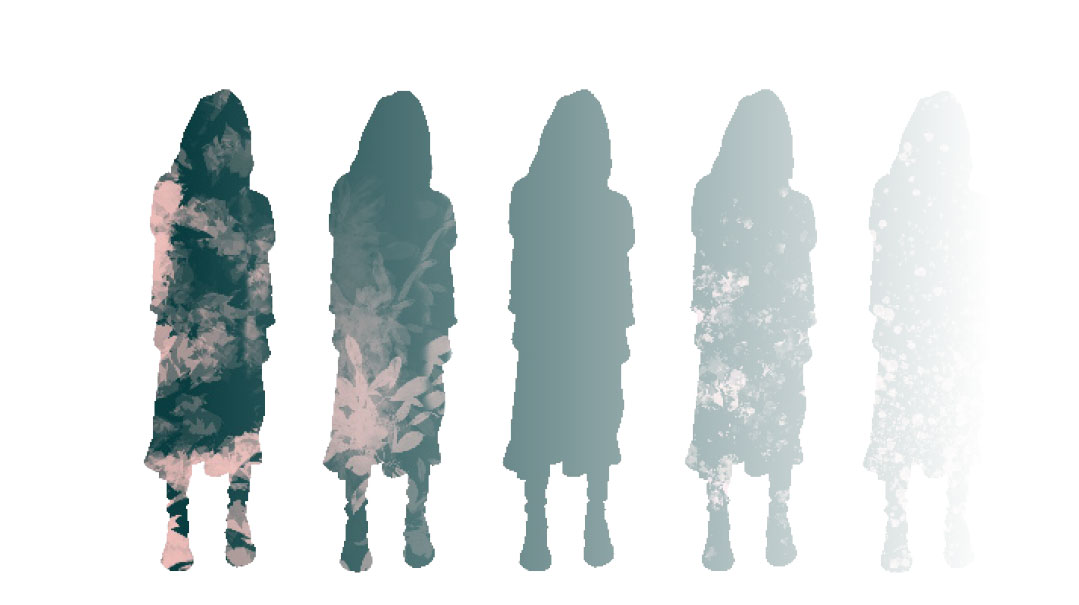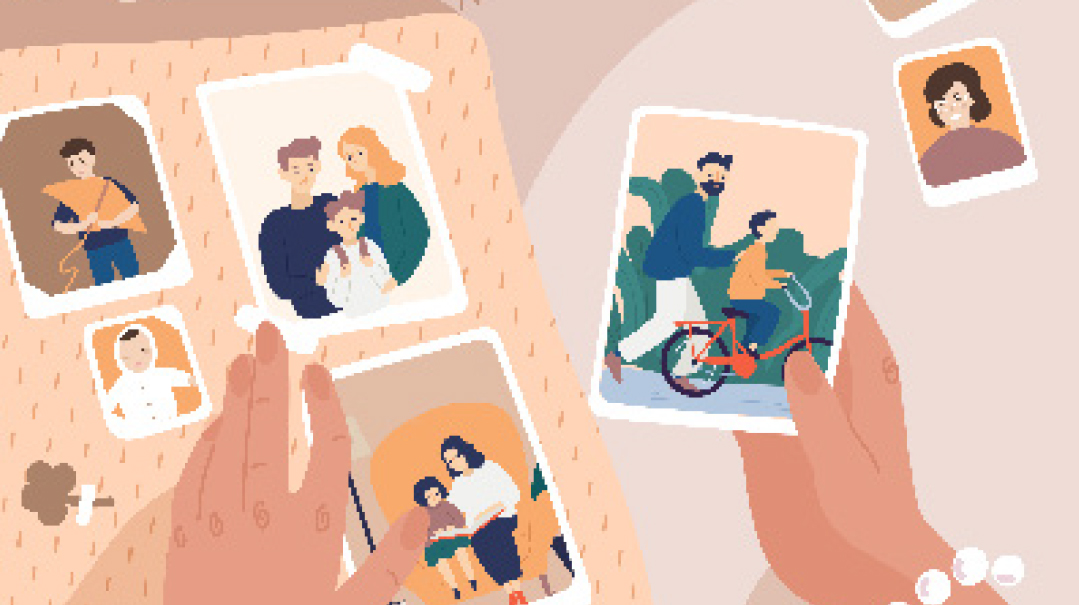Between the Cracks

“You know why I did it? Not for her. For me. I didn’t have anybody else to speak to!” she spat.

As told to Miriam Schweid
I see the cracks grow longer and wider as the years pass and the student body increases tenfold. There’s so much more space to fall between them. Since my second year of teaching I measure success by how many girls I manage to pull from between the cracks. Each of those names is a zechus for refuas hanefesh for Tzippy.
Tzippy and I weren’t even classmates just grade mates. I barely knew her name but Tzippy knew my name and hated it — both first and last. She hated the way if someone said my name everyone knew who I was. “Oh Shevy Greenbaum? The one who had the lead role in the school play and won the writing contest? She’s sooo nice.”
Meanwhile I was occupied with my own set of teenage struggles and I never thought of myself as popular or someone to be jealous of. So when a prominent rav in the community contacted me one Thursday during my second year of teaching I had no clue what he wanted. I detected a note of accusation in his voice when I affirmed that I was indeed Shevy Greenbaum.
“Do you know Tzippy Schwartz?”
“Tzippy? Um I think I do. Vaguely.” I had seen her at a wedding a few weeks before and had noticed that her blue eyes were barely visible under her makeup. Her hair was both lighter and darker in different places than I remembered it. But I might have been wrong.
“Hmm. Only vaguely? Well she seems to remember you well.”
“Okay. Can I help you with anything?”
“Actually I want to help you. You know that having a person carrying a grudge against you is damaging.”
I was quiet. He continued. “Tzippy is going through a rough time in Yiddishkeit and apparently you caused it. She doesn’t want to forgive you.”
I forced myself to breathe. My mother was at the table intrigued by the name on the Caller ID and was making inquisitive faces.
“Um… Do you know why she said that?” I asked
“You hurt her in school in the younger years.”
“Younger years? I was only her classmate until sixth grade. What did I do to her?” The phone felt clammy in my palm. I had been a nice fun kid in school. I wasn’t sure who Tzippy was anyway and now I was being blamed for making her go off the derech?
“You know you might suffer later in life because of this. I’m giving you a chance to rectify the situation.”
“I — I don’t remember much. Can you maybe tell me about a specific story?”
“She says there was something in fourth grade.”
The only thing I remembered from fourth grade was that we had two official class bullies that scared the living daylights out of me every day. And I wasn’t one of them. Something was wrong with either my memory or Tzippy’s.
“So how do I go about asking for mechilah?”
He set up an appointment in his office for Motzaei Shabbos.
I was sure he had the wrong number. I made a mental list of every single memory I had of her. We had been partners in a skit in fifth grade. I had noticed during 12th grade how kind she was to a girl in the grade from an underprivileged home.
Otherwise I came up blank.
Definitely nothing that needed forgiveness.
Two nights later, I was a basket case. I made sure to dress in my nerdiest top, and I didn’t do my hair well. I was hoping not to come across as intimidating or polished. I knew I could sometimes be both. I had spent all day walking around in a daze thinking about fourth grade.
It was snowing outside when I walked up the pathway to the rav’s house. I didn’t blush often, but when his wife answered the door, I blushed. Did she also know that I was the demon in the story? I stamped my boots and traced the pattern on the rug.
The rav greeted me. I’ve heard such great things about him and knew how many girls admired him. Could be I was wrong, but he looked at me like I’d been a bully, a fiendish girl who thrived on torturing others.
Finally, Tzippy walked in. I didn’t recognize her. Behind the thick shadow and lashes were two deep pools of pain mixed with hatred. It was scary to sit so close to someone who hated me so much.
The rav spoke about the power of forgiveness, and then he left us alone.
It was the most painful meeting I ever attended.
I’ve always wondered how one measures bottomless, but now I knew. The misery, the pain, the sheer agony of a tortured soul all pointed to a very, very deep pit. And I was to blame.
I started crying. I asked her again and again what I did. I made myself vulnerable, shared all my personal failures, but… nothing, she couldn’t tell me what I did. She just spoke and spoke of all the pain in her heart.
Then I told her how much I admired her for befriending the underprivileged girl. That did it.
“You know why I did it? Not for her. For me. I didn’t have anybody else to speak to!” she spat. “I was a nobody. And my mother… she’s just sweet. Also a bit of a nobody. I was just the good girl. The eidel girl with the eidel mother who had no one to stick up for me. I was the girl who was just part of choir and who got no mention at graduation.”
So it had nothing to do with fourth grade.
It had everything to do with falling between the cracks.
Gently, I asked for forgiveness. I begged her to understand that not everything is the way it seems. She then said that every time she saw me on the street she felt like Simmy from the Yaffa Ganz books. I was on the glamorous side of the boulevard. Apparently, Simmy’s side of the boulevard had many, many cracks.
At a certain point, the rav asked if we were done. I shook my head. I had to hear how it felt being on that side of the street.
She told me how the first time she was noticed was when she first broke a rule. It felt good. For a moment, she wasn’t in the cracks. So she did it again and again and again. Until, she wasn’t part of the cracks anymore. Until there were so many mechanchos and therapists looking at her. But she wasn’t happy.
And it was all because of me.
She looked at me as the polar opposite of her. To her, my easy popularity was hard to fathom. Her mother was such a nice, kind lady. But she had failed to notice how sad her daughter was. And sadness that festers for so many years grows huge and ugly.
We parted that night with a hug. I hoped I’d helped her out of the pit, but she was too far in. Over the next few years, I watched the crocodile teeth of drugs and pain eat her up.
Today, I don’t know where she is. I’ve heard many rumors and I hope none of them are true.
A while later, the rav called to apologize. He said that as she talked more, he realized I hadn’t done anything wrong. It didn’t really calm me down, though. I felt horrible. Every time I thought of her eyes, I imagined them staring at me through the wallpaper. I thought of all my students with eyes in the wallpaper.
The weight of those eyes tortured me for the next few weeks.
My shidduch was redt only two weeks after the meeting, and I got engaged shortly after that. Tzippy must have heard somehow, because she got me a gorgeous gift. I never used it. I tried. But her blue eyes peeked through the crystal decanter.
With hindsight, I realize that she was psychologically unstable, and her thoughts didn’t mirror reality. But still, I ached for her.
So when a mother of a student called me last week and told me that her daughter felt like a piece of furniture until I read out her writing to the entire class, I smiled and thought of Tzippy.
Tzippy, that’s a zechus for you.
When the graduation director asked me about solos, I told her about a different girl who could use a solo. The girl’s glowing face at graduation is a zechus for Tzippy.
But there are so many girls who still look like Tzippy. And yes, there are girls like me, too. It’s not their fault that they’re talented, and of course they should shine. But if there’s one girl that feels like an extinguished light while another girl has the crystals of her glowing chandelier polished again and again, it’s not enough to tell the girls that roles in the school performance are bashert.
No, life isn’t fair, but it’s not our job as teachers and mechanchos to be the ones to ensure that this rule is enforced.
Tzippy, as I mark the last of my midterm tests and try to give an honest, personal compliment to a good, average, somewhat shy girl, I think of you.
I don’t know where you are. I’m not capable or trained to help you. But I hope the smile I put on this girl’s face will be the final zechus to help you out of the deep cracks.
(Originally feature in Family First, Issue 525)
Oops! We could not locate your form.













